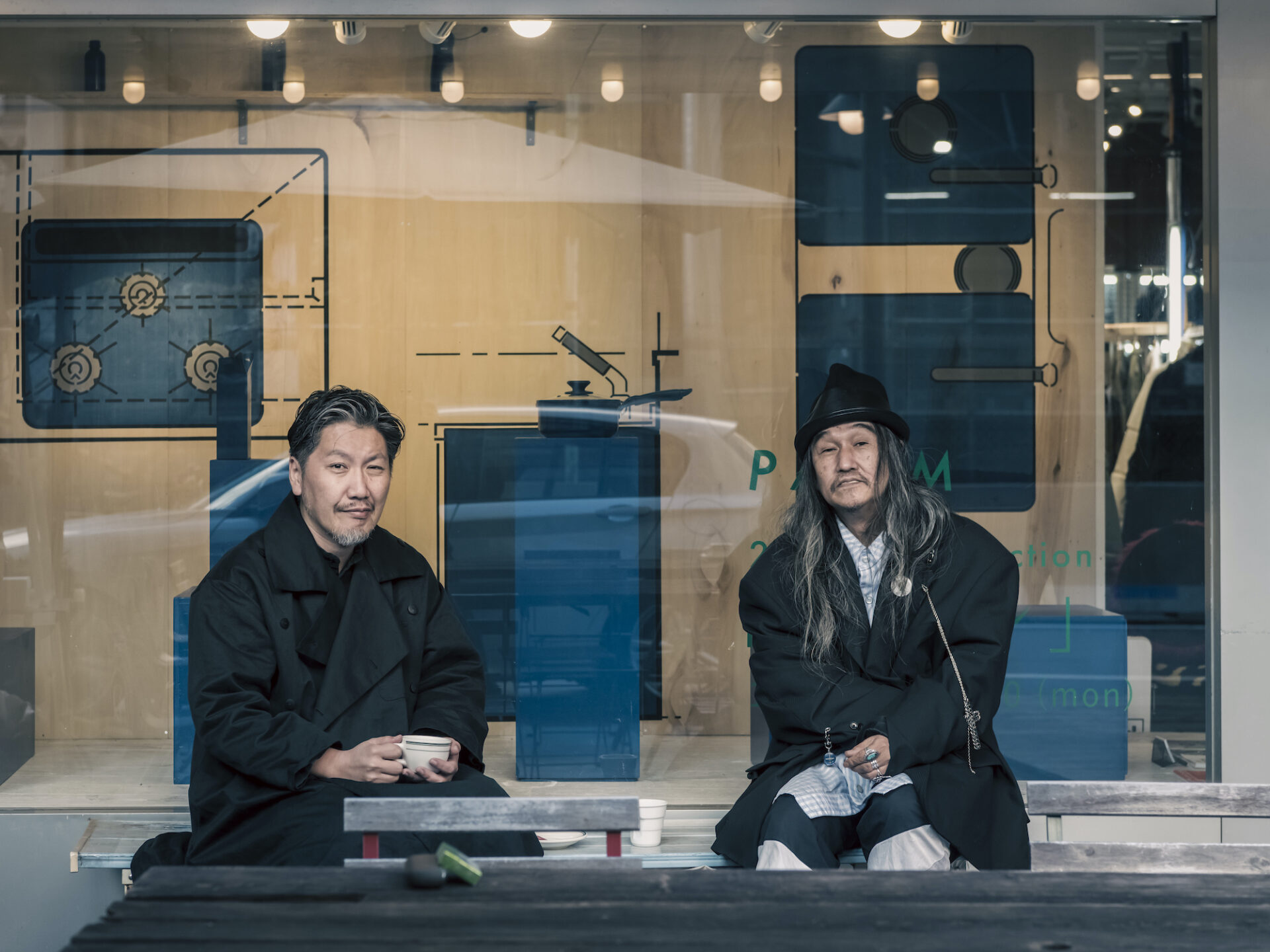
2024-01-20
Vol.2
DESPERADO co. CREATIVE DIRECTOR / BUYER
Eiichi Izumi
-
Where is Rich Apparel Culture in Today’s Society?
-
Pressure to Conform and Fashion
-
“Necessities for Life” and “Enrichment of Life”
-
Good rather than Big
In fashion and music, there are particular passions that can only be understood and shared by those with the same sensibility. Such passions generate new enthusiasm and create the next trend. Shibuya is a district that has always been a source of unique apparel culture in Tokyo. In this city of rapid change, Eiichi Izumi, owner of the select store DESPERADO, has survived the rise and fall of the fashion industry. What does the future of fashion, which is said to be losing its individuality, look like in his eyes? “I want to bring back young creators with individuality and talent to the streets,” he says. With him as our guest, we talked about whether fashion could create a new culture once again.
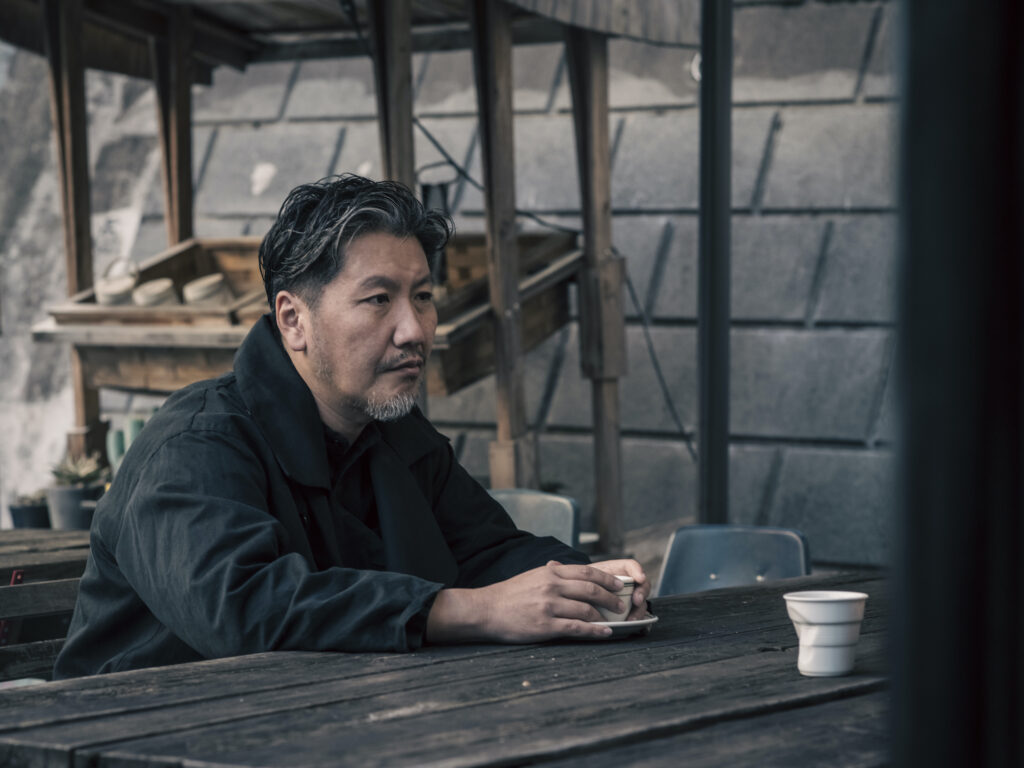
“It must be a “suffocating” time for those who seek personality and individuality in fashion (Shigeta)”
Msakazu Shigeta: My hometown is Takasaki, Gunma. Looking back on the time in my late teens through around 20, Takasaki was quite culturally rich, and there were many apparel stores in the back alleys. The Takasaki Vivre, a fashion building, was one of them.
Eiichi Izumi: Right, the Takasaki Vivre was a fun place. A man called Mr. Sato was the president at the time. He gave much support to me.
Shigeta: Apparel culture in the late 80s to 90s was energetic. Being attracted to it, I used to look around Ura-Harajuku in Tokyo.
At the time, individuality in fashion and music was allowed to a far greater extent than today.
Izumi: Exactly.
Shigeta: Back then, being unique was considered a good thing in fashion.
But nowadays, things like normcore and standard fashion have gained popularity, and we see more commodification of products, which often carry no individuality. It must be “suffocating” to those who seek personality and individuality in fashion. My main business, cosmetics, is rooted in the richness of individuality. If individuality were unnecessary, then cosmetics themselves would be necessary, too. Mr. Izumi, you often say fashion must be something “designed.” Why has today’s fashion become devoid of individuality, and in what direction will the future of fashion be headed? We would like to talk with you about that.
Izumi: People who come to me for an interview expect to hear what I think of the future of the fashion business from the minority’s perspective. I have been running a select shop called DESPERADO for nearly 24 years by the railroad tracks in Shibuya, but I’m not doing this for money. Sales have been constant without many ups and downs. Some select shops expanded their business by riding the economic wave, but we could not ride it. That is why we are always in the minority group. (laughs)
But, I have always valued the idea of minority and anti-mainstream, and I am proud to have been a unique player in the industry.

——Many say the rise of fast fashion is one of the significant changes in the last 20 years. What do you think?
Izumi: Although various overseas fashion brands landed on the Japanese market, Japanese brands such as UNIQLO and Muji have gained popularity for their simple design. Why? Because there is a need for safety and security in the consumer mindset. Japanese people especially want safety and security, right? Because the first thing your boss tells you when you join a company is something like, “Just don’t fail.” I was born in 1958 and experienced both the high economic growth period and the collapse of the bubble economy. Back then, the core idea was, “Failure is the source of success,” or furthermore, “No challenge, no success.” But such an attitude is being lost in every aspect of society these days, and the atmosphere in society is more like, “Let’s not try anything for now.”
Shigeta: Mr. Izumi, you saw the society before and after the bubble economy burst. Comparing the two, which period do you think was more interesting in fashion?
Izumi: Of course, it is before the burst. But there is no use in missing the good old days. If you live in the past, eventually, you will stop thinking.
You can not understand fashion just by style because it is inextricably linked to the times. That is why fashion is often called the “mirror of the times.” Young people are trying to imitate the fashion of the 80s and 90s through photos and materials. Still, their understanding is often only superficial because they don’t understand the essence, such as why the jackets are power-shouldered style. Just like today’s sustainable fashion is linked to environmental issues, the era defines the role and function of fashion. Without understanding it, any style is limited to superficial expressions.
——What do you think of the young people’s consumption behavior?
Izumi: It seems to me that young people nowadays are afraid of “failure.”
You can find such feelings in how they shop: they always check social media reviews before purchasing something, and when in the shops, they buy best-selling items. They may think they are making their own choices, but, in reality, their decision depends on the information of others. I’m afraid such a tendency can lead to a decline in their ability to think.
Shigeta: When we were about their age, we had pride that we wouldn’t buy something people call the “No.1.”
Izumi: Yes. We preferred anti-mainstream, right? In fashion, new things are born from such a spirit of anti-mainstream. People like Mr. Kawakubo of Comme des Garçons and Martin Margiela were unsatisfied with the status quo and became reformers. I’m afraid there are fewer people with such energy in today’s fashion industry.
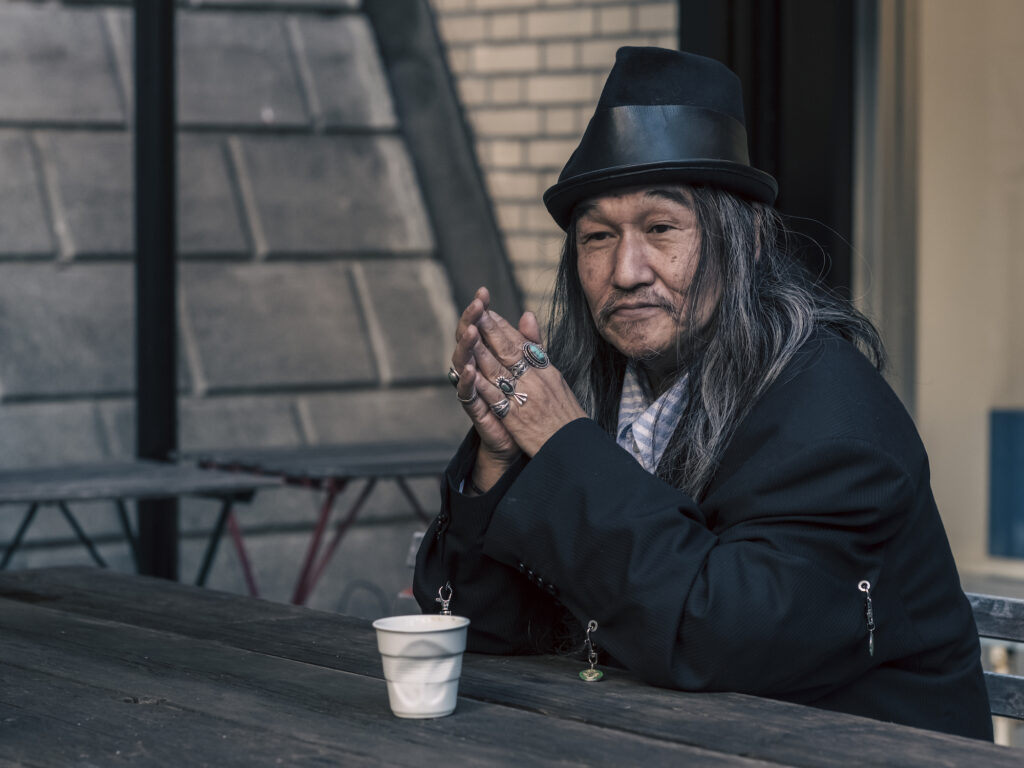
“Fashion must go more into the private sphere (Izumi)”
Shigeta: I think fashion is unique in the sense that it requires practicality and design.
Izumi: Right, basically, those two things are essential.
Shigeta: Do you think the trend to seek safety and security in clothing comes from today’s consumers’ mindset, which puts more value on practicality than before? Some people say the normcore or simple style is inspired by Zen ideas such as wabi-sabi, but for me, it’s a little different…
Izumi: As for safety and security, practicality is a part of the reason, but I think evaluation by others has more influence.
Shigeta: What makes you think so?
Izumi: For example, when we purchase something, we often care how others react. We are relieved if they say something like, “Oh, I wanted it, too.”, but shocked if they say, “What’s that?” Japanese people are seriously concerned about how they appear to others, right? I would say this is one of the factors hampering the development of this country. As you can see from the word” convoy system,” Japanese people value harmony after all. Once you say, “Turn to the right!” everyone turns to the right. This way of behavior is drilled into us from childhood: school uniform is the perfect example. People have little psychological resistance to wear the same clothes.
Shigeta: Right, school uniforms still remain.
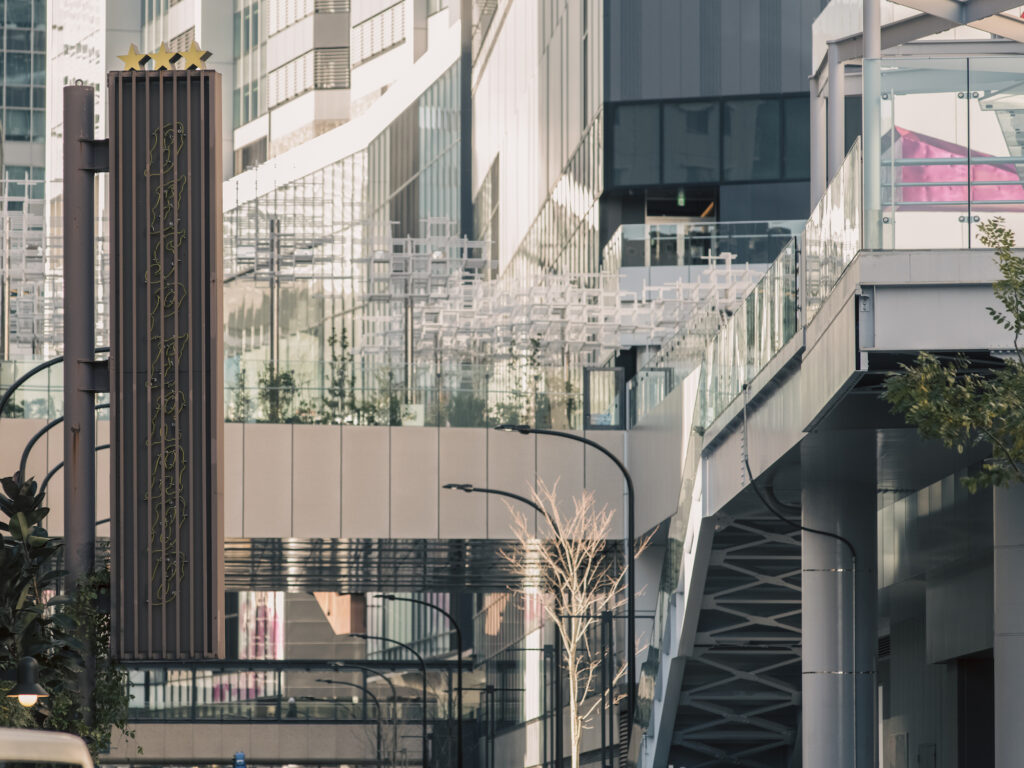
Izumi: The problem of pressure to conform is not limited to fashion; you can see the same problem in urban development. Following the Shinjuku subcenter, other cities constructed tall buildings one after another, and local cities imitated it. As a result, all the cities have lost individuality and look the same. I guess you were surprised today. I wonder when Shibuya became full of skyscrapers. People moved horizontally not long ago, but now they are moving vertically. Street fashion was born because people walked horizontally along the street. I believe vertical movement brought by elevators and escalators would never create such a culture.
Shigeta: Right, the landscape around here has changed a lot.
Izumi: The atmosphere of the back alley has completely disappeared as the buildings connected to Shibuya station have expanded the area.
To come here(DESPERADO), people pass through several stores with hot-selling items. We need to be creative in the item lineup to attract them. It’s tough, but I find it rewarding at the same time.
For example, some people want to eat soba noodles at a chain store in front of a station, while others want to eat it at the top of Mt. Takao, taking the train all the way there. I’m not talking about which is better or worse, but in this case, where you want to eat is what matters. We can say the same thing in fashion. You can put your hand on your heart and then ask yourself why you chose that outfit. If you say, “Because my boyfriend likes this kind of outfit” or “Because the person with me said it was good,” then it means the people around you made a choice. Such kind of outfit is, in a sense, formal clothing. I believe we should choose clothing for ourselves and our own taste. In this sense, fashion should go more into the private sphere.
I sometimes go to outlet stores to do market research and often come across scenes where wives help their husbands choose their clothing. Husbands do as they are told and entirely lack initiative. I am always stunned to see such scenes.
Shigeta: Men like that would not get women’s attention.
Izumi: When I went to Paris, I saw a lot of men in the women’s lingerie department. Husbands gave their wives opinions and chose the underwear together. That is a situation where Japanese men must feel a little embarrassed, but men in Paris are that much more interested in fashion. This example would show that fashion is in their private sphere.
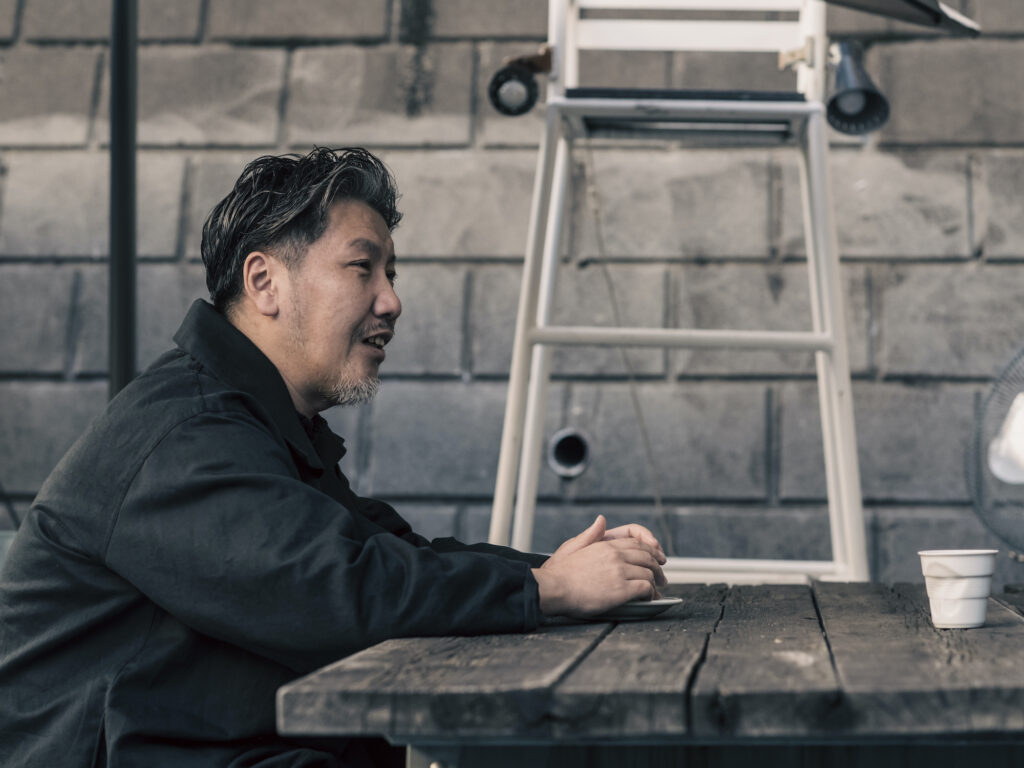
Shigeta: People in their mid-30s to early 40s have experienced the normcore and standard fashion trend since they were young and are also cautious not to stray from it. But I think people in Generation Z feel suffocated in such an atmosphere.
Izumi: I agree. So, the situation in their generation will undoubtedly change. Anti-mainstream always emerges, and it will eventually become mainstream. Such a cycle of trends is what makes fashion so attractive. A new movement will always change people’s need for clothing department. Why do people go to departments to buy clothes? One of the biggest reasons is safety and security, which we mentioned earlier. As long as you wear clothes you bought at department stores, nobody talks about you behind your back. People go to department stores for a sense of security.
On the other hand, people who go to fashion buildings are interested in what is in fashion now. Then, what are people who come to stand-alone stores like ours looking for? They are looking for the next trend.
——I heard DESPERADO receives requests to open a pop-up shop in department stores. What do you think is the reason?
Izumi: I assume young buyers are concerned about the current situation. They know that they can not survive by just doing steady business.
Shigeta: They have a strong sense of urgency against player change in the industry. In our generation, the bubble economy burst almost forcibly made such a player shift in society, and the young generation got the opportunity. In this sense, such a shift driven by the COVID pandemic must be underway. New players must be pessimistic about the idea of safety and security because safety and security are something uncertain: it is doubtful if such things even exist in the first place. As we can see from the current world situation, we are always at risk of getting involved in disputes and conflicts. Under such circumstances, we must keep believing in and protecting ourselves rather than being concerned about how we appear to others.

“One of the things young people nowadays feel something wrong is that the world is not kind (Shigeta)”
Izumi: We all know the term “necessities of life,” the items people buy for their living. In a sense, fashion is not always a part of the “necessities of life.” Instead, I believe fashion should be a part of the “enrichment of life,” the items people buy to improve their quality of life. In countries with high creative awareness, people pay higher attention to such items. But in Japan, interest in such items has dropped dramatically since the COVID pandemic. People may say, “We are struggling to make a living and have no money to spend on such items.”
Nevertheless, designers must still work hard to make products that enrich people’s lives. In the 70s and 80s, when society was full of dreams and hopes for the future, people were more interested in such items, and the market expanded rapidly. We need to bring back such good times once again.
Shigeta: And you have expectations for young people?
Izumi: Yes. That’s why I interact actively with young people in my shop.
One of the best things about being involved in fashion is that I can meet people of all ages and genders. I can communicate with people as young as my daughter or grandchildren.
Shigeta: What is your impression of young people visiting your shop?
Izumi: I like they have free feelings and ideas. Although I have been doing this job for a long time, I feel my experiences sometimes hamper proper judgment and understanding. Advice such as “I did it before, but it didn’t work well” is nothing but a misplaced kindness for those trying something. The fact that something didn’t sell well in the past is no guarantee that it won’t sell well today.
Not limited to experiences, there are so many other things that cloud your understanding. I once did an installation featuring trash cans and stepladders I found in Germany and other places, and I put a sticker on the display window that read “TRASH, STEP UP.” By the word, I wanted to convey that you can sometimes temporarily put aside things like social status, honor, title, experience, family, etc., and then you can become one human being; now, you feel lighter and reach new heights. As we grow older, we inevitably become flabby, physically and in other ways, like socially. But young people are not. That’s why they are proactive, and their sense and ideas are unbounded. That’s what I like about them.

Shigeta: What do young people who visit your store often expect of you?
Izumi: Young people who visit DESPERAD tend to feel something is wrong with the current situation. So, I always try to talk about various things with them first. After talking with them, they say something like, “I feel relieved,” or “I feel encouraged,” and they leave with a confident look, saying, “Everything will be all right!” And when we meet five or ten years later, they say, “Mr.Izumi, what you told me at that time has been my belief.” The influence of words is amazing. You will never forget the words that have captured your heart. So, whenever I talk to someone, I always try to say something universal that will not easily change for five or ten years.
Shigeta: What are your criteria for universality?
Izumi: Considering humankind’s life in history, some things have stayed the same. For example, emotions like love will not disappear in 30 or even 100 years. I consider those things universal.
Shigeta: I see, emotions like love…
Izumi: It is important to have love not only for people but also for things. As long as there is love, you will naturally use things for a long time and will not sell clothes from fast fashion brands at flea markets immediately after you buy them. Rather than fear failure, you should make decisions with love in mind. No matter what people say, as love grows within you, you will surely obtain confidence that “everything will be all right.”
Shigeta: One of the things young people today feel something wrong is that the world is not kind. My daughter asked me the other day, “Why are the pedestrians not so kind in Tokyo?” It seems she saw pedestrians not stopping and kept walking while a car was attempting to make a turn. Respect and kindness were natural for her, so when she saw this scene, she felt a strong feeling of discomfort.
Izumi: I see. But at the same time, kindness is also ambiguous, and what constitutes kindness might vary widely from person to person. Do you consider someone who directly points out something face to face to be kind or someone who doesn’t do so to be kind? The former is definitely kinder for me, but Japanese people consider the latter kinder. Human relationships are supposed to be formed through discussions, and such relationships last longer. I believe frank communication is essential to bring us closer.

“I am trying not to be an obstacle, and I want to have a place where I can contribute (Izumi)”
——When I visited DESPERADO before the interview, I was impressed by your words that the era of “Good rather than Big” has come.
Izumi: “Being big is good.” is a word by Naozumi Yamamoto, a prominent conductor in the 1970s. At the time, he wrote a song encouraging people to dream of making it big. However, once the bubble economy collapsed, such value quickly faded away. People changed their mindset: rather than trying to grow unnecessarily large, they started to do their best within the boundaries that keep them happy. The same can be said for the organizational system. Large organizational systems are fine as long as they are healthy, but overweight ones tend to become unstable. Most Japanese organizations still have a pyramid structure with the president at the top, and it is not suited for quick responses to any changes because it takes time to communicate. You asked why we receive requests for pop-up stores. It is because it takes time for approval if they make a new store. For temporary pop-up stores, staff can make decisions within their responsibility. That might be one of the reasons.
If the distance from the top to the bottom is the problem, why don’t we re-edit the system to the star shape and make it flat? There are many such systems in Western countries.
Shigeta: Speaking of organization, I feel it is a problem that many are structured in such a way that it is not affected by emotional likes and dislikes. Whenever you do something with someone, such a feeling is essential.
Izumi: Absolutely.
Shigeta: But people say, “Don’t judge anything by likes or dislikes” or “Make decisions with the organization in mind.” If you follow the order of “Just do it,” you will never be able to put passion into anything.
Izumi: When I introduced brands such as Marimekko and Dries Van Noten to Japan, there was the pyramid of the fashion industry with the trendsetters at the top, and I was always thinking about how to resonate with them. Once something got to their heart, it would always reach the end of the pyramid after a short time. But, since the interest in fashion has become more diverse nowadays, just because a fashionable person has a specific item does not necessarily mean that everybody will follow the trend. Sometimes, secondhand items are the most stylish.
Shigeta: The way trends spread is changing from top-down to bottom-up, right?
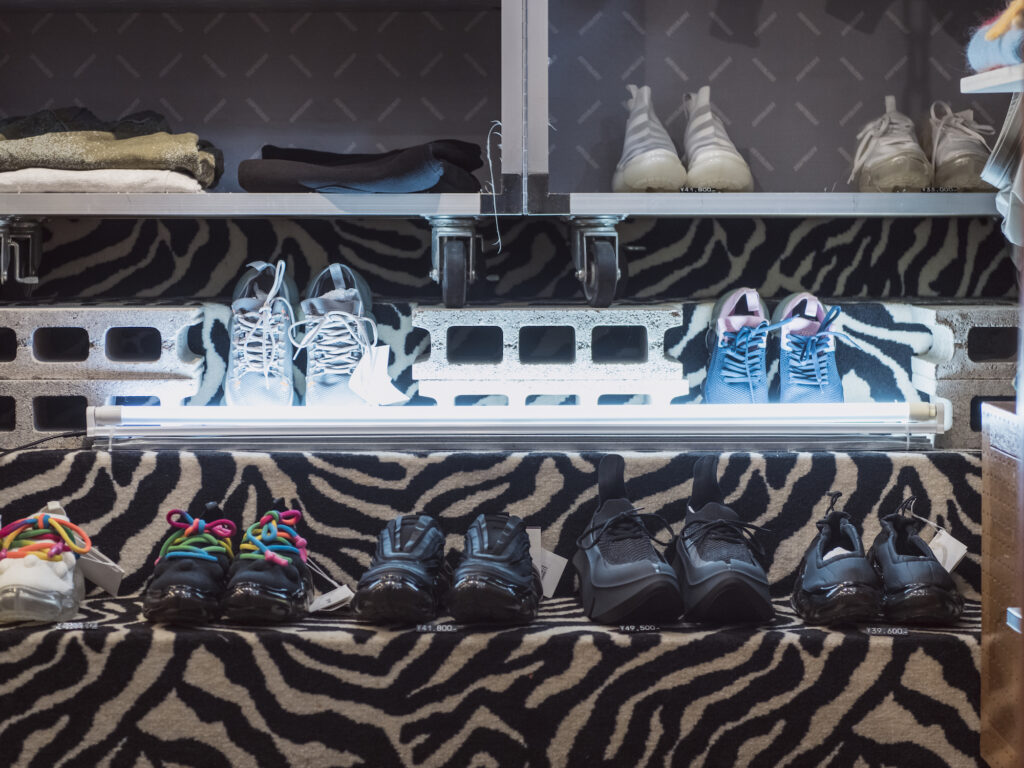
Izumi: Yes, one prime example is that magazines don’t sell well these days. We used to imitate the models in magazines, but people nowadays imitate amateurs on social media.
——So, you expect the young generation, using such tools, will make the fashion and apparel industry more interesting?
Izumi: Yes, I hope so.
Shigeta: I think it depends on how adults like Mr.Izumi, who has a value that past experiences can be baggage, interact with young people.
Izumi: I am trying not to be an obstacle in whatever organizations or teams I join, and I want to have a place where I can contribute. I’ve been thinking about it a lot lately, but we have to be a person who can help others. We work for ourselves when we are young. We start contributing to teams when we turn around 30. When we turn 40, we work for organizations and, after that, for the country and other people.
Speaking of myself, I consider my business as a contribution to the fashion and apparel industry. You can not reach such an idea if you only focus on your own business.
Shigeta: It must be best if you have fun while you help others.
Izumi: Whenever I talk about something like this, everyone says, “Me too, me too,” but if you don’t think through how you can do that, you can not respond when it comes to the point. I believe there are three essential points. The first is to have vitality, and the second is to have skills. For example, to help a drowning person, you must have the “swimming” skill, right? There are many things that you can do if you have skills. The last is to have money. You may imagine money worship if I speak like this. But one day, I asked wealthy Jews, “What are you going to do with all the money you’ve stored?” They said, “Don’t think of money as money; think of it as a ticket.” They think of money as a ticket to buy the dream. Japanese people don’t have this sort of idea. When I told this story to a young boy the other day, he proudly said, “I don’t have money or skills right now, but I can help others since I have vitality more than enough.” (laughs)
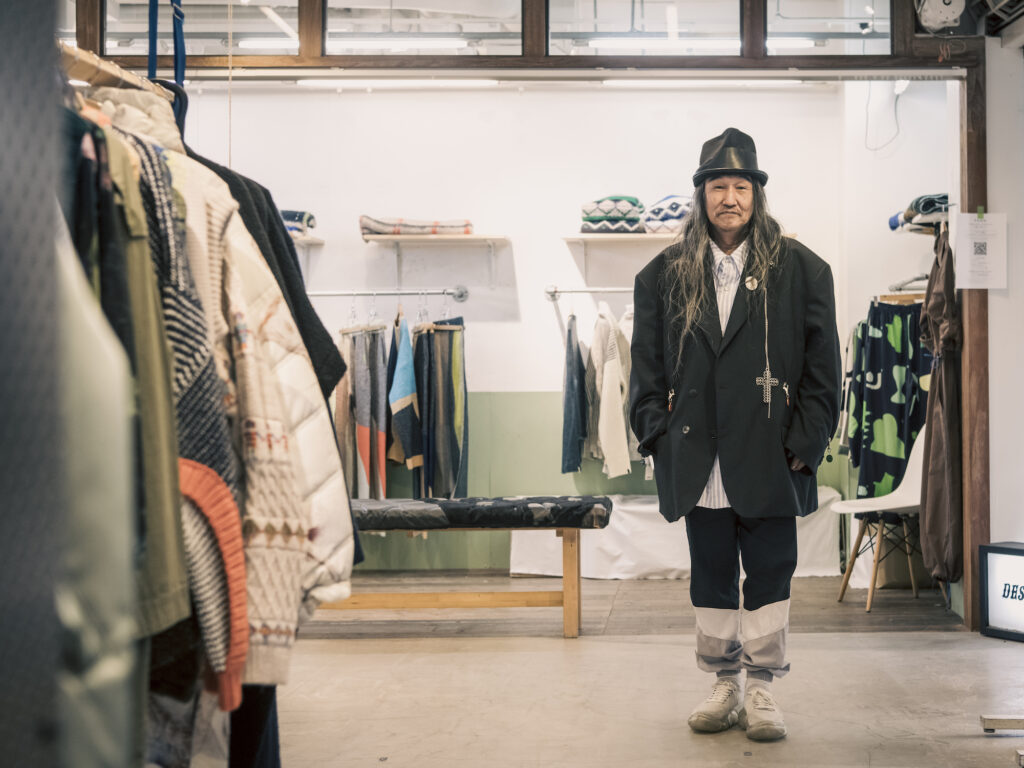
Profile
-
Eiichi Izumi
Izumi was born in 1958 in Osaka. Influenced by his mother’s love for clothes, he became interested in clothing from an early age.
In 1981, he joined a major apparel company, where he discovered and distributed products of various up-and-coming designers such as Dries Van Noten, Christophe Lemaire, and Marc Jacobs. He was also involved in producing brands and shops for IL BISONTE, Marimekko, etc.
In 2000, he opened DESPERADO in Shibuya, Tokyo, as a part of the incubation business and became independent afterward. While running DESPERADO as a community shop, he continues to focus on discovering young designers, artists, and brands. -
Masakazu Shigeta
After working as an engineer in the music industry, Shigeta began his career as a cosmetics developer in 2001. Since 2004, he has produced a variety of cosmetics brands in the healthcare business of Nitto Denka Kogyo Co., Ltd., a metal surface treatment company founded by his great-grandfather.
In 2017, he founded Osaji, a skincare lifestyle brand, and became the brand director. He also produced Kako, a specialized shop for home fragrances perfume in Kuramae, Tokyo, in 2021, and a combined shop of Osaji, kako, and a restaurant enso in Kamakura, Kanagawa, in 2022.
In 2023, using Nitto Denka Kogyo’s skills, he produced a pottery brand, HEGE, and he also opened a restaurant serving rice porridge, HENGEN, in Kita-Ueno, Tokyo.
Publications
Taberu Biyou (Eating for Beauty) (SHUFU TO SEIKATSU SHA, 2024)
42-Sai ni Nattara Yameru Biyou, Hajimeru Biyou (Beauty cares to quit and start when you turn 42) (Takarajimasha, 2022)
Information
DESPERADO
Since its opening in 2000 with the shop concept of the fusion of “fashion” and “art” and the fusion of “products” and “people,” DESPERADO deals with clothes and items by young designers and artists, which Izumi traveled and selected around the world.
DESPERDO also plays a role as a community store that aims for the fusion of “products” and “experience,” as well as the interaction among designers, artists, and those who love fashion and art deeply.
〈Pop-Up Stores〉
Jan 17 – 28, 2024 : Osaka Shinsaibashi PARCO 1F
Feb 21 – Mar 5, 2024 : Osaka Daimaru Shinsaibashi 1F
-
Photographs:Eisuke Komatsubara
-
Text:Masahiro Kamijo